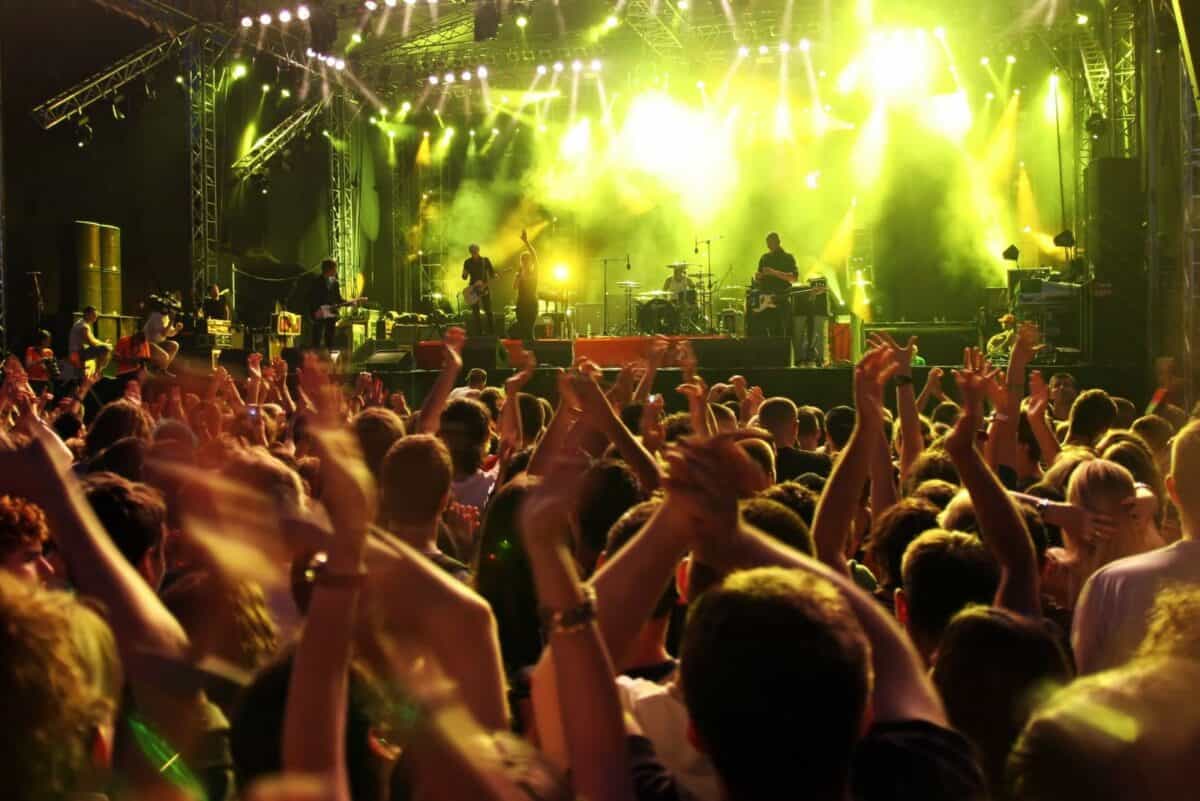Now that summer is here, it means that outdoor concert season is back. It means it is time for crowds, picnics, the sound systems and our favorite bands. There truly is nothing like feeling the music with millions of fans all at once. Everyone is singing along and feeling connected by a mutual love for the same artists and music. One of the most important benefits of music is its ability to create a sense of belonging between individuals. Amazingly it may unite people like no other force, creating a common ground for people who may not share the same language, beliefs, culture, or religion.
Despite the important benefits that music has for us as individuals and as communities, it is important to be prepared and cautious the next time you attend a live outdoor concert.. Even for a short period of time, the loud music of live music can impact your ears and hearing health. Here are some things to consider, for the next time you attend an outdoor concert.
How loud is too loud?
For most people, it is not every day that you attend a live music event, so it may be tempting to believe that just this one time you will let things slide. However, it doesn’t take more than one exposure of loud noise to cause permanent hearing damage. The volume or loudness of sound is measured in decibels (dBA) and any sound louder than 85 dBA is past the safe level of listening. Below this level you can listen indefinitely but starting at a constant exposure of 8 hours, you begin to be in the risk zone for lasting hearing damage. Remember, it is not only the decibel level that you need to account for but the length of exposure. For every increase of three decibels, the exposure time is cut in half. For instance, at 88 dBA it only takes 4 hours before you are in the danger zone for hearing damage, and at 91 dBA it starts at 2 hours. For outdoor concerts, decibels often range between 90 to 100 dBA. At the high end of this damage can occur in 15 minutes or less!
A Growing Risk
There are an estimated 466 million people worldwide who live with hearing loss. While the most common cause of hearing loss is due to advanced age, the World Health Organization (WHO) estimates that 1.1 billion people worldwide between the ages of 12 and 35. are at risk of hearing loss due to exposure to excessive noise via headphone use and at entertainment venues such as night clubs and live concerts. Noise induced hearing loss can occur to anyone at any age, so it is important to be prepared to protect yourself from noise in live music settings in order to protect your hearing. Here are some strategies to protect your hearing at the next live show you attend.
Location Matters
The closer you are to the speakers, the louder the exposure. However, it is important to understand the inverse square law which shows that the intensity of sound pressure decreases with the square of the distance from the source, such as the speakers. In fact, according to this inverse square law, when you double the distance from a point source, the sound pressure level decreases by approximately 6 dBA. This means that all you have to do to lower your risk in part is make sure that you are farther away from the speaker or noise source.
Bring Hearing Protection
Hearing protection can lower the decibel level for moderately dangerous levels of noise anywhere from 15 to 33 dBA, which can clear you from danger within a certain range. This includes disposable foam earplugs or more heavy-duty custom fitted ear plugs or protective earmuffs. For louder music venues, such as live music inside where the decibel level can reach 110 or more, it may be beneficial to invest in noise canceling headphones which allow quiet sounds to come through while sounds in the danger zone are cut out.
Have fun and be safe
A good live music show is one that will leave memories which will last forever. However, you don’t want to also live with lasting hearing loss to pair with those memories. For more tips in protecting your hearing and test for hearing loss, contact us today!

